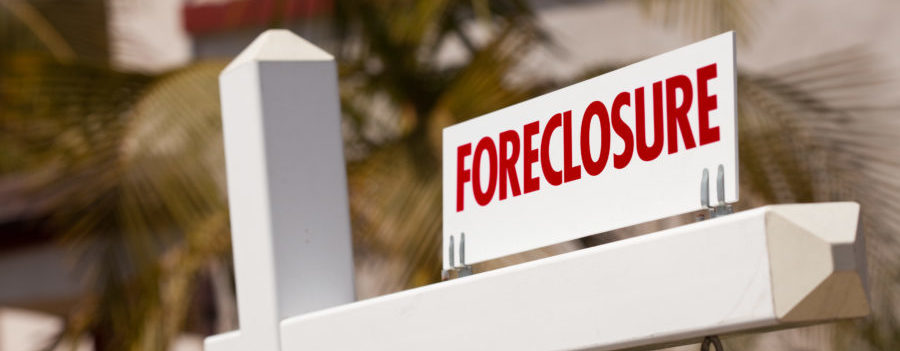 A lot has changed since we posted our last update. A new president is in the White House, mortgage forbearance programs and foreclosure moratoriums have been extended by the federal government, a $1.9 trillion stimulus package is working its way through Congress, millions of Americans have been vaccinated against the coronavirus and the entire U.S. population may be inoculated by early summer.
A lot has changed since we posted our last update. A new president is in the White House, mortgage forbearance programs and foreclosure moratoriums have been extended by the federal government, a $1.9 trillion stimulus package is working its way through Congress, millions of Americans have been vaccinated against the coronavirus and the entire U.S. population may be inoculated by early summer.
For the first time in a very long time, there is light at the end of the COVID tunnel.
Unfortunately, that light could become an oncoming train for homeowners who make unwise or incorrect decisions when forbearance and foreclosure relief programs sunset in the months ahead. To help ensure that the end of the pandemic doesn’t mark the beginning of a nightmare for people pummeled by the virus, I’ll discuss the aid programs that are now available, how to take advantage of them, and then outline steps families should take now to secure their financial future.
FORECLOSURE MORATORIUMS
Let’s start by taking a look at the foreclosure landscape.
I’m pleased to report that there is some good news for borrowers whose mortgages are backed or owned by the federal government. The moratorium on foreclosures imposed by the Federal Housing Administration (FHA), Veterans Administration, the U.S. Department of Agriculture (USDA), Fannie Mae, and Freddie Mac will remain in effect until June 30, 2021.
While the extensions provide much-needed breathing space for homeowners who were in or were about to be in foreclosure when the pandemic struck, I must emphasize that the bans are temporary reprieves, not pardons. Mortgage servicers will begin processing judicial and non-judicial foreclosures the minute the moratoriums are lifted.
The news isn’t anywhere near as good for homeowners with loans that are not government-backed. While some states have enacted eviction and/or foreclosure moratoriums that protect borrowers whose mortgages are held by private lenders, many, including Ohio, have not. That means foreclosure is a very real and imminent threat—especially as courts in more and more jurisdictions resume normal operations.
Whether you are now protected by a federal or state moratorium or are involved in an active foreclosure proceeding, now is the time to contact experienced legal counsel like the attorneys at DannLaw for advice.
We have helped thousands of families save their homes by negotiating affordable loan modifications and utilizing groundbreaking legal strategies that stop or soften the impact of foreclosure.
We also perform a thorough review of every client’s mortgage history and case file to determine if their servicer or lender made mistakes or committed violations of federal or state consumer protection laws. Those errors and violations often enable us to defeat the foreclosure claim and recover substantial monetary damages from lenders that can put families on the path to financial security.
To learn more about our innovative and highly effective foreclosure defense strategies schedule a free consultation by completing our contact form or sending us a direct message on Facebook. But don’t delay, every day you wait could bring you one day closer to losing your home.
Forbearance
Before I dig into the details about the current state of forbearance relief, please keep this oft-repeated phrase in mind:
Forbearance is NOT forgiveness.
As I have noted in every one of our COVID updates, borrowers will be required to make the principal, interest, and escrow payments that have been deferred when their forbearance period ends. No one, not President Biden, members of Congress, nor the CEOs of major lenders and servicers has ever so much as hinted that these costs will be forgiven. That means homeowners will, at some point, be on the hook for thousands of dollars in arrearages.
That said, here is an overview of the relief programs that are available and applicable deadlines.
Borrowers with FHA, VA, or USDA loans have the right to request up to 12 months of forbearance in two six-month increments. The deadline to apply for an initial 180-day forbearance period has been moved from March 31, 2021 to June 30, 2021.
In addition, the agencies are also providing two extensions of up to three months each for homeowners who paused payments on or before June 30, 2020. The extensions will give homeowners nearing the end of their maximum 12-month forbearance period extra time to recover from financial hardships caused by the pandemic. Borrowers who qualify must apply for the additional time no later than June 30, 2021.
Homeowners with Fannie Mae/Freddie Mac loans are eligible for up to 12 months of forbearance. At this point, the agencies have not set a deadline to apply for an initial 180-day forbearance period.
Like the FHA, VA, and USDA, Fannie and Freddie are also giving borrowers approaching the end of their maximum forbearance period more time to resume making payments. Homeowners who entered forbearance on or before February 28, 2021 may now request an additional three months of relief.
With due apologies to Shakespeare, we’ve arrived at the point in the update where I must say: To forbear or not to forbear, that is the question. Although every situation is different, here are some broad guidelines that will help borrowers with government-backed loans determine if they should enter, remain in, or avoid forbearance:
- While forbearance is not a perfect solution, it is far better than foreclosure. That is why struggling homeowners should take advantage of the available relief programs. If you are in forbearance and are unable to resume making your mortgage payments stay in until you are back on your feet. If you are not in forbearance but need to be, contact your lender, and apply ASAP.
- If you are in forbearance but can now afford to make your mortgage payments, it’s time to plan and execute an exit strategy. Staying in longer than necessary will needlessly increase the amount of deferred principal, interest, and escrow you owe moving forward.
- Borrowers who have been and can continue to make their mortgage payments should avoid forbearance like the plague.
Deciding how to settle the balances accrued during forbearance is just as important as choosing whether to enter the program and when or if to leave. While the specific plans offered by each agency differ, in general, the following four options are available. It is important to note that FHA, VA, USDA, Fannie and Freddie are prohibited from requiring borrowers to make lump sum payments of the amounts due.
Repayment plan. This option enables borrowers to pay the balance due by increasing their mortgage payment for a few months.
Deferral or partial claim. This option allows homeowners who can resume making their regular payments but can’t afford more to move missed payments to the end of their loan or put them in a subordinate lien repayable only when they refinance or sell their home or terminate their mortgage.
Loan modification. Borrowers who can no longer afford their pre-pandemic mortgage payment can negotiate a loan modification. The amount owed in deferred principal, interest, and escrow will be rolled into the loan. The monthly payment will probably drop, but the term or the principal balance of the mortgage may increase.
Lump-sum reinstatement. An option to consider for borrowers who have the financial wherewithal to pay back missed payments all at once.
Your mortgage servicer should reach out to you 30 days before your forbearance period ends to discuss your options. Here are two important points to ponder:
First, remember, you cannot be forced to make a lump sum payment. If that is the only option offered by the servicer, ask them about the other plans they offer.
Second, each repayment option is complicated and carries risk. Don’t think for a minute that your servicer is looking out for your best interests. In many cases the opposite is true. That is why you should consult with DannLaw before leaving forbearance. We will work with you to devise an exit strategy that protects you and your family and helps secure your financial future.
Things are even more complicated and risky for homeowners whose mortgages are held by private lenders. If you are in forbearance, please stay in regular contact with your servicer because they have the ability to change the terms of your plan at any time. They can also require you to make a lump sum payment if you choose to leave or they decide to end your forbearance period. In addition, it is highly likely that any repayment options they offer will be designed to maximize their profit at your expense.
DannLaw’s experienced legal team knows how to deal with and hold private lenders accountable. If you have a private mortgage, don’t hesitate to contact us to arrange a free consultation so we can assess your situation and help ensure that your home and your finances don’t become victims of the pandemic.
Finally, I want to remind everyone that forbearance is not automatic. You must always contact your lender or servicer and ask to defer your payments and you must make the request no later than the deadlines I’ve listed in this update.
If you have any questions about forbearance, foreclosure, or other consumer credit or lending issues, do not hesitate to contact us. We are here to help.
Thank you for taking the time to read this update. Be well, and take heart, we’ve come a long way together and I’m confident better days are just ahead.
 A lot has happened since we issued our first COVID-19 on March 13. In our tenth update we’ll take a look at recent developments, discuss impending challenges and opportunities, issue a couple warnings, and dispense some sage advice…
A lot has happened since we issued our first COVID-19 on March 13. In our tenth update we’ll take a look at recent developments, discuss impending challenges and opportunities, issue a couple warnings, and dispense some sage advice…
 The moratorium on foreclosures imposed at the beginning of the COVID-19 crisis are coming to an end in some Ohio counties and will lapse for federally backed mortgages at the end of August. That means sheriff’s sales will resume soon.
The moratorium on foreclosures imposed at the beginning of the COVID-19 crisis are coming to an end in some Ohio counties and will lapse for federally backed mortgages at the end of August. That means sheriff’s sales will resume soon. Today it is estimated that more than 8 million Americans, including tens of thousands of Ohioans, are behind on their rent payments and may soon be evicted from their homes. This number could rise substantially when the CARES Act’s Pandemic Unemployment Insurance payments sunset at the end of July.
Today it is estimated that more than 8 million Americans, including tens of thousands of Ohioans, are behind on their rent payments and may soon be evicted from their homes. This number could rise substantially when the CARES Act’s Pandemic Unemployment Insurance payments sunset at the end of July. Finally, I would like to extend a personal invitation for you to join me on August 5 for the premiere of “The Con,” a four-part series about the 2008 fraud and corruption-fueled collapse of America’s housing market. I’m both proud and humbled to say the series highlights the steps I took as Ohio Attorney General and at DannLaw to hold those responsible for the crisis that led to 10,000,000 families losing their homes accountable for their actions. The series provides a lesson for the risks we face as we hurtle toward a pandemic-related recession.
Finally, I would like to extend a personal invitation for you to join me on August 5 for the premiere of “The Con,” a four-part series about the 2008 fraud and corruption-fueled collapse of America’s housing market. I’m both proud and humbled to say the series highlights the steps I took as Ohio Attorney General and at DannLaw to hold those responsible for the crisis that led to 10,000,000 families losing their homes accountable for their actions. The series provides a lesson for the risks we face as we hurtle toward a pandemic-related recession.